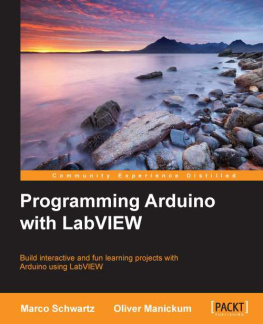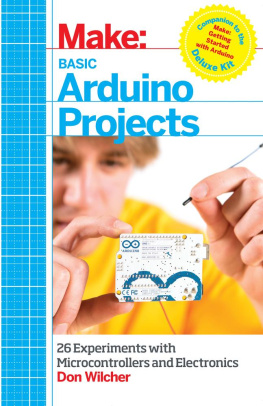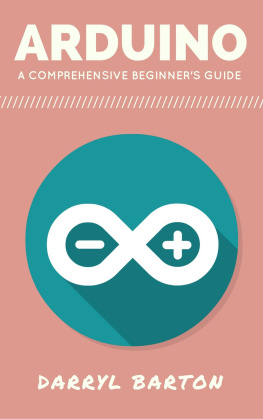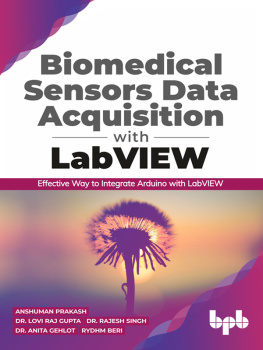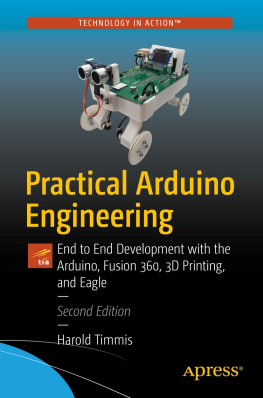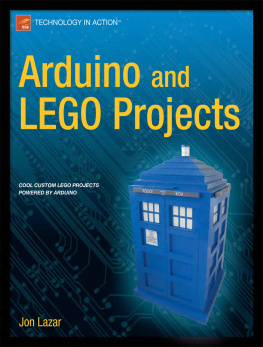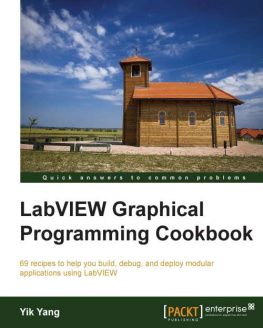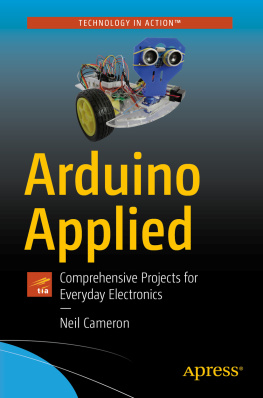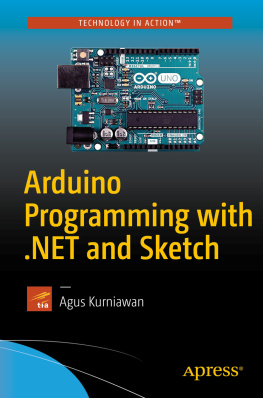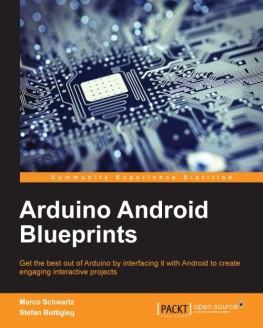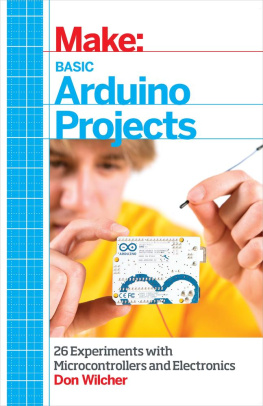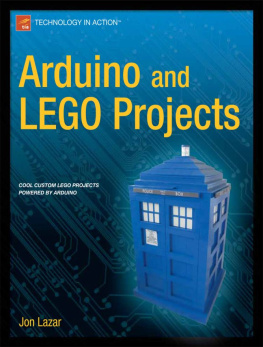All rights reserved. No part of this book may be reproduced, stored in a retrieval system, or transmitted in any form or by any means, without the prior written permission of the publisher, except in the case of brief quotations embedded in critical articles or reviews.
Every effort has been made in the preparation of this book to ensure the accuracy of the information presented. However, the information contained in this book is sold without warranty, either express or implied. Neither the authors, nor Packt Publishing, and its dealers and distributors will be held liable for any damages caused or alleged to be caused directly or indirectly by this book.
Packt Publishing has endeavored to provide trademark information about all of the companies and products mentioned in this book by the appropriate use of capitals. However, Packt Publishing cannot guarantee the accuracy of this information.
Published by Packt Publishing Ltd.
Birmingham B3 2PB, UK.
Credits
Authors
Marco Schwartz
Oliver Manickum
Reviewers
Adith Jagadish Boloor
Aaron Srivastava
Fangzhou Xia
Commissioning Editor
Amarabha Banerjee
Acquisition Editor
Harsha Bharwani
Content Development Editor
Rikshith Shetty
Technical Editor
Bharat Patil
Copy Editor
Karuna Narayanan
Project Coordinator
Sanchita Mandal
Proofreaders
Ameesha Green
Sandra Hopper
Indexer
Rekha Nair
Production Coordinator
Shantanu N. Zagade
Cover Work
Shantanu N. Zagade
About the Authors
Marco Schwartz is an electrical engineer, entrepreneur, and blogger. He has a master's degree in electrical engineering and computer science from SUPELEC in France and a master's degree in micro engineering from the EPFL in Switzerland.
He has more than 5 years of experience working in the domain of electrical engineering. His interests gravitate around electronics, home automation, the Arduino and Raspberry Pi platforms, open source hardware projects, and 3D printing.
He also runs several websites on Arduino, including the http://www.openhomeautomation.net/ website, which is dedicated to building home automation systems using open source hardware.
He has written another book called Arduino Home Automation Projects , Packt Publishing , on home automation and Arduino and also published a book called Internet of Things with the Arduino , on how to build Internet-of-Things projects with Arduino.
Oliver Manickum has been working in the embedded development scene for almost 20 years. His favorite development platform is Arduino. He has delivered thousands of projects and is a big fan of ATMEL and the Arduino platform. He currently writes high-performance games on mobile platforms; however, developing prototypes with Arduino is his main hobby.
He has also reviewed Netduino Home Automation Projects , Matt Cavanagh .
I would like to thank my wife, Nazia Osman, for her patience while I was building devices that would sometimes burn down parts of our house, over and over again.
About the Reviewers
Adith Jagadish Boloor is an undergraduate student at the School of Mechanical Engineering at Purdue University, West Lafayette. He was born and brought up in the beautiful coastal city of Mangalore, India. Having lived there for 18 years, he came to the United States of America to pursue his higher education, with the desire to acquire new skills pertaining to the latest technological developments, and with this knowledge, he hopes to revolutionize the robotics sector.
Having built a couple of robots in his high-school days, his primary interest lies in the field of robotics. However, he occasionally occupies himself in areas that are still at their infancy, such as 3D Printing and Speech Recognition. More recently, he has begun his exploration in home automation, wireless networking, the Internet of Things, and smart security systems.
His passion for kindling the benefits of technology is what drives him towards open source and to create a smarter planet.
Aaron Srivastava is a biomedical engineer from North Carolina State University. He is currently working on a neurosurgery project to aid patients undergoing spinal cord stimulation treatments. His main interests are in entrepreneurship, business development, and programming languages. Aaron also does web designing, on the side, as a hobby.
Fangzhou Xia is a dual-degree senior student at University of Michigan, with a background in both mechanical engineering and electrical engineering. His areas of interest in mechanical engineering are system control, product design, and manufacturing automation. His areas of interest in electrical engineering are web application development, embedded system implementation, and data acquisition system setup.
www.PacktPub.com
Support files, eBooks, discount offers, and more
For support files and downloads related to your book, please visit www.PacktPub.com.
Did you know that Packt offers eBook versions of every book published, with PDF and ePub files available? You can upgrade to the eBook version at > for more details.
At www.PacktPub.com, you can also read a collection of free technical articles, sign up for a range of free newsletters and receive exclusive discounts and offers on Packt books and eBooks.
https://www2.packtpub.com/books/subscription/packtlib
Do you need instant solutions to your IT questions? PacktLib is Packt's online digital book library. Here, you can search, access, and read Packt's entire library of books.
Why subscribe?
- Fully searchable across every book published by Packt
- Copy and paste, print, and bookmark content
- On demand and accessible via a web browser
Free access for Packt account holders
If you have an account with Packt at www.PacktPub.com, you can use this to access PacktLib today and view nine entirely free books. Simply use your login credentials for immediate access.
Preface
Arduino is a powerful electronics prototyping platform used by millions of people around the world to build amazing projects. Using Arduino, it is possible to easily connect sensors and physical objects to a microcontroller, without being an expert in electronics.
However, using Arduino still requires us to know how to write code in C/C++, which is not easy for everyone. This is where LabVIEW comes into play. LabVIEW is software used by many professionals and universities around the world, mainly to automate measurements without having to write a single line of code.
Thanks to a module called LINX, it is actually very easy to interface Arduino and LabVIEW. This means that we will be able to control Arduino projects without having to type a single line of code. The possibilities are endless, and in this book, we will focus on several exciting projects in order for you to discover the key features of the LabVIEW Arduino interface.

